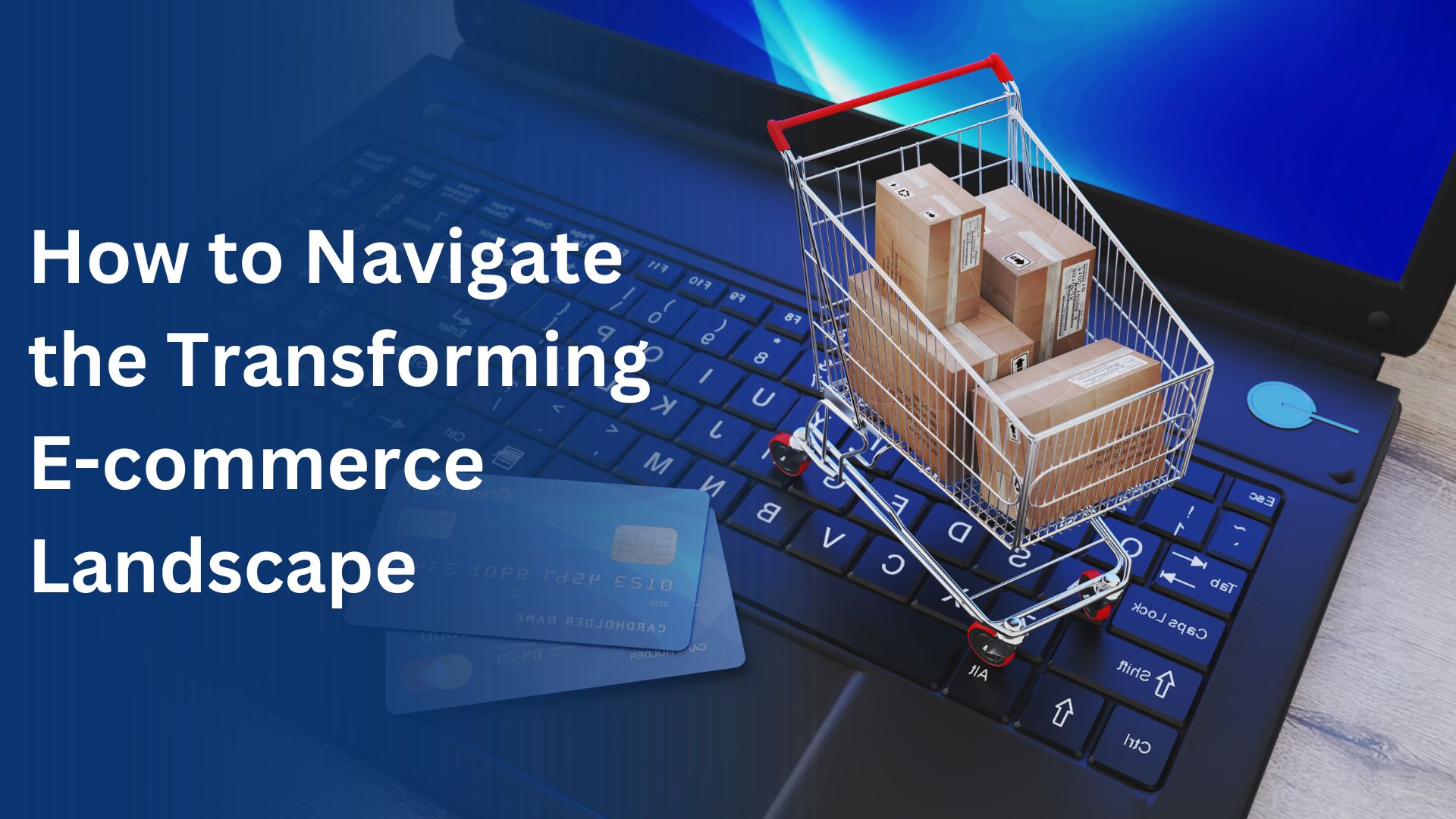The e-commerce industry has undergone a remarkable transformation in recent years, reshaping how businesses and consumers engage in commerce. However, it is imperative to analyze the current state of e-commerce and explore how the landscape adapts to meet evolving customer expectations. As the new year approaches, e-commerce companies must strategically plan to capitalize on emerging opportunities and address challenges.
The Current Scenario
The global e-commerce market is experiencing unprecedented growth, fueled by technological advancements, changing consumer behaviors, and the widespread adoption of digital platforms. An unprecedented event like the COVID-19 pandemic has acted as a catalyst, accelerating the shift towards online shopping and prompting businesses to rethink their strategies. As we stand at the intersection of convenience and innovation, several key trends are shaping the e-commerce landscape.
Rise of Mobile Commerce: The ubiquitous presence of smartphones has turned them into virtual shopping malls. Consumers now prefer the convenience of shopping on their mobile devices, emphasizing the need for mobile-optimized websites and user-friendly apps. Brands that prioritize a seamless mobile experience are gaining a competitive edge.
Personalization and Customer Experience: E-commerce platforms leverage data analytics and artificial intelligence to deliver personalized shopping experiences. From personalized product recommendations to targeted marketing campaigns, brands strive to understand and cater to individual customer preferences, enhancing overall satisfaction and loyalty.
Omnichannel Retailing: The boundary between online and offline retail is blurring as businesses embrace omnichannel strategies. Consumers expect a seamless transition between physical stores and digital platforms, with options like click-and-collect and in-store pickups. Brands that integrate these channels effectively are creating a more holistic shopping experience.
[Bonus Read: Why Is M-Commerce The Future Of E-Commerce? ]
Changing Customer Expectations
The modern consumer is discerning and demands more than just a transaction. A combination of factors, including technological advancements and the effects of the pandemic, has led to a shift in customer expectations. Brands that recognize and adapt to these expectations are better positioned for success.
Convenience is Key: Today’s consumers value convenience above all else. The ability to shop anytime, anywhere, and receive products promptly is non-negotiable. To meet these expectations, E-commerce players must invest in logistics, fast shipping, and streamlined checkout processes.
Sustainability Matters: A growing number of consumers prioritize sustainability in their purchasing decisions. E-commerce brands must adopt eco-friendly practices, from packaging to supply chain management, to appeal to the environmentally conscious consumer.
Transparency Builds Trust: Trust is a critical factor in e-commerce, and transparency is the foundation of trust. Brands must be transparent about product information, pricing, and business practices. Customer reviews and ratings play a significant role in building credibility.
[ Also Read: Top Reasons To Choose Magento For Enterprise Commerce ]
E-commerce Strategies for Revenue Growth
To successfully navigate the evolving e-commerce landscape, e-commerce brands must adopt strategic approaches that align with changing customer expectations and industry trends. Here are key strategies for driving revenue growth:
Prioritize User Experience: A seamless and enjoyable user experience is fundamental to e-commerce success. Invest in intuitive website designs, mobile optimization, and responsive customer support to ensure a positive journey for users from the moment they land on the platform.
Implement Omnichannel Strategies: Break down the silos between online and offline channels. Implement omnichannel strategies that enable customers to transition effortlessly between physical stores and digital platforms. Features like click-and-collect and unified loyalty programs can strengthen customer engagement.
Focus on Personalization: Leverage data to understand customer preferences and behavior. Implement personalized marketing strategies, recommend relevant products, and create targeted campaigns. The more personalized the shopping experience, the more likely customers will repeat purchases.
Embrace Sustainability: Demonstrate a commitment to sustainability throughout the supply chain. From eco-friendly packaging to ethical sourcing, aligning with environmentally conscious values can attract a growing segment of consumers who prioritize sustainability.
Build Trust Through Transparency: Transparency is a currency in e-commerce. Clearly communicate product information, pricing details, and business practices. Encourage customer reviews and respond to feedback promptly. Trust is a valuable asset that can significantly impact brand loyalty and repeat business.
Leverage AI/ML: Embrace cutting-edge technologies such as AI, machine learning, and data analytics to understand customer behavior, personalize experiences, and optimize operations. Technology not only enhances efficiency but also provides valuable insights for informed decision-making.
Applications for Revenue Growth
- Personalized Product Recommendations: Utilize AI/ML algorithms to provide personalized product recommendations, increasing cross-selling opportunities.
- Predictive Analytics for Inventory Management: Implement predictive analytics to optimize inventory levels, reducing costs associated with overstocking or stockouts.
Applying AI/ML for Cost Reduction
- Automation of Routine Tasks: Integrate AI-driven automation for routine operational tasks, improving efficiency and reducing labor costs.
- Cost-Effective Customer Support: Deploy chatbots and virtual assistants for cost-effective customer support, addressing queries and issues efficiently.
In Conclusion
The e-commerce landscape is evolving at a rapid pace, presenting both challenges and opportunities for businesses. Adapting to changing customer expectations, leveraging technology, and implementing strategic initiatives are essential for sustained growth. As we look towards the future, e-commerce success will be defined by the ability to innovate, prioritize the customer experience, and build a brand that resonates with the values of the modern consumer. By embracing these principles, businesses can not only navigate the complexities of the e-commerce ecosystem but also thrive in the era of digital commerce.

